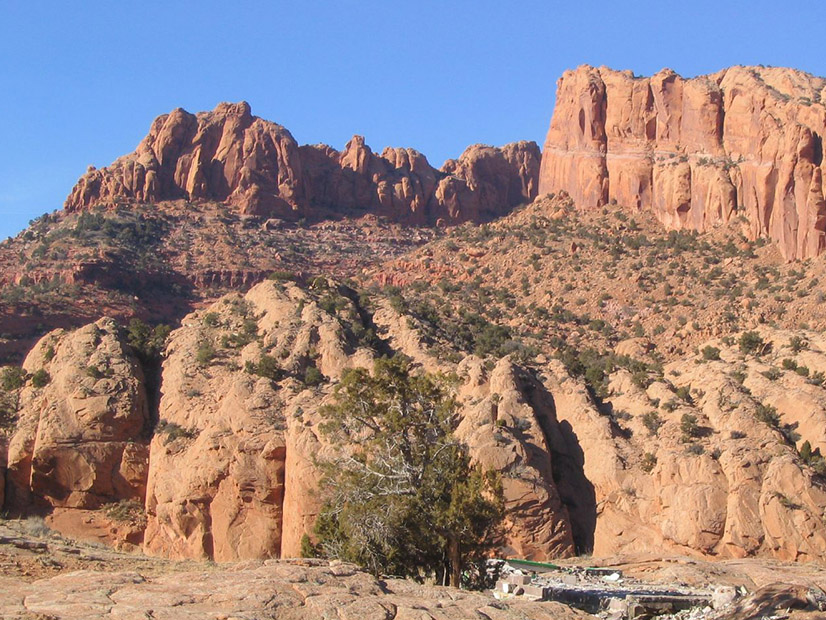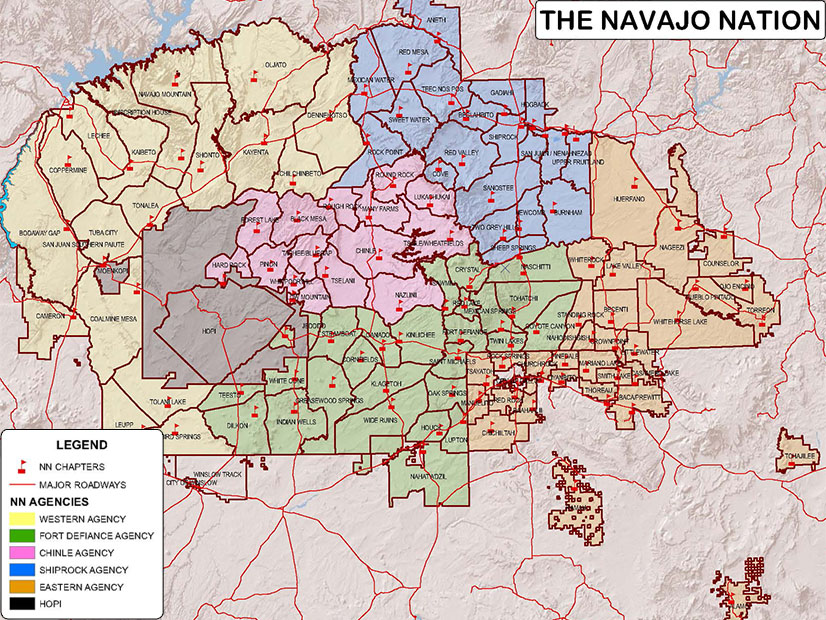FERC on Feb. 15 rejected preliminary permits for seven pump storage projects on Navajo Nation land, saying it will no longer consider projects that are opposed by host tribes.
Preliminary permits give the permit holder priority for filing a development application while it conducts feasibility studies. It does not authorize access to project lands or any construction.
The commission previously granted preliminary permits routinely, saying concerns about potential impacts could be addressed in subsequent licensing proceedings. Recently, however, it denied permits at federal facilities where the agency that operates the facility opposed the project.
“We believe that our trust responsibility to tribes counsels a similar policy in cases involving tribal lands and accordingly, we are establishing a new policy that the commission will not issue preliminary permits for projects proposing to use tribal lands if the tribe on whose lands the project is to be located opposes the permit,” FERC said. “To avoid permit denials, potential applicants should work closely with tribal stakeholders prior to filing applications to ensure that tribes are fully informed about proposed projects on their lands and to determine whether they are willing to consider the project development.”
Denied were five preliminary permit applications filed by Nature and People First Arizona PHS LLC (NPFA):
-
- the 2,250-MW Black Mesa Pumped Storage Project North; the 1,500-MW Black Mesa Pumped Storage Project East; and the 2,250-MW Black Mesa Pumped Storage Project South, all closed-loop systems on Navajo Nation land in Navajo and Apache counties, Ariz. (P-15233, P-15234, P-15235);
- the Chuska Mountain Pumped Storage Project, proposed for San Juan and McKinley counties, N.M. (P-15293-001); and
- the Chuska Mountain North Pumped Storage Project in Apache County, Ariz. (P-15309).
FERC also rejected Western Navajo Pumped Storage’s proposed Western Pumped Storage 1 and Western Pumped Storage 2 in Coconino County, Ariz. (P-15314, P-15315)
In contrast, the commission awarded preliminary permits Feb. 15 to Neptune Pumped Storage for feasibility studies of the 318-MW Elephant Rock Pumped Storage Project near Sixes River (P-15310) and the 550-MW Soldier Camp Pumped Storage Project on Lobster Creek (P-15311), both in Curry County, Ore.
The commission approved the permits, which are good for 48 months, despite protests from environmental groups that cited concerns over the projects’ impact on water quality and quantity, aquatic resources, wildlife and habitats, and tribal resources. Some opponents said it was doubtful the state of Oregon would issue water quality certifications for the projects.
But FERC ruled that because a preliminary permit does not authorize access to project lands or project construction, “addressing the commenters’ concerns at the permit stage is premature.”
FERC said it sent 12 tribes identified by Neptune Pumped Storage as having a potential interest in the Soldier Camp project a copy of the notice accepting the application but none of the tribes filed comments.
The Navajo Nation raised numerous objections to the projects proposed on its lands, including that developers had not sought its consent for use of the land or procured required clearances for preliminary biological investigations. The Nation also cited concerns over its water rights and potential impacts on rare and culturally important plants and wildlife and said the developers had failed to engage in “meaningful consultation.”
The Navajo Tribal Utility Authority, a unit of the nation that provides electric generation, transmission and distribution, did not take a position on NPFA’s Black Mesa projects but said it “looks forward to robust cooperation, communication and transparency” as the developer pursued its application.
“Despite substantial progress in recent years, thousands of homes on the Navajo Nation still lack access to electricity and other basic services,” the authority told FERC in January 2023. “Accordingly, NTUA recognizes the wide range of benefits that can flow from environmentally, economically and culturally responsible energy development on and around Navajo land, including the creation of well-paying, local jobs for Navajo residents.”
In addition to its new policy, FERC’s acknowledgment of tribal concerns was reflected in the Office of Public Participation’s annual report, issued Feb. 15, which noted its participation in the Tribal Energy Equity Summit, “Just Transmission for a Just Transition” in Saint Paul, Minn. in May 2023. (See related story, FERC Meets at Howard Law School and Gets Update on OPP Activity.)



